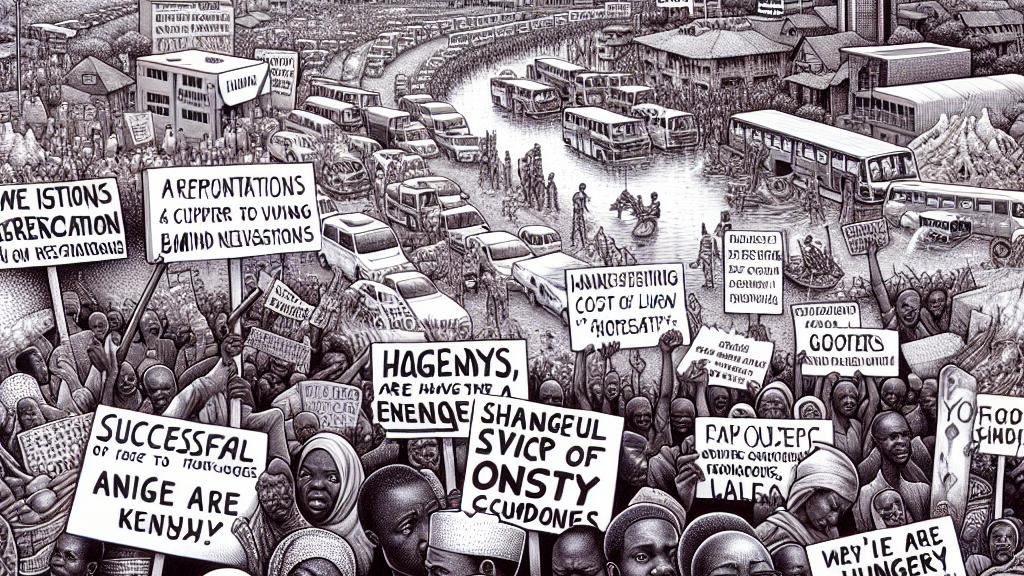Gunshots and Grumbling: Nigeria's Protest of Pain and Poverty!
Overview
- Massive protests erupt nationwide in Nigeria as citizens confront brutal economic hardships.
- Security forces respond with live ammunition and tear gas, intensifying public outrage.
- Demonstrators demand the reversal of fuel subsidy removal and urgent reforms for better governance.

A Nation on the Brink of Unrest
In Nigeria, a wave of protests has swept across various cities, including Kano, Abuja, and Lagos, as citizens rally against the skyrocketing cost of living and worsening hunger. Many are expressing their grievances through chants like 'We are hungry,' highlighting the dire economic conditions that have left numerous families struggling to afford basic necessities. The catalyst for this unrest was the recent removal of fuel subsidies by President Bola Tinubu, which, despite the government’s rationale for reducing expenses, has led to severe hikes in fuel prices and caused a ripple effect on food and other essential goods. Inspired by the successful campaigns of protesters in Kenya who achieved policy changes, Nigerians have taken to social media to organize and mobilize, igniting a movement that seeks to reclaim their economic rights.
A Heavy-Handed Response from Authorities
The Nigerian government's response has been increasingly aggressive, with police utilizing live ammunition and tear gas in attempts to quell the demonstrations. In the city of Kano, major protests were met with violence as security forces aimed to disperse crowds by force, leading to reports of injuries and intense confrontations. Demonstrators in Abuja faced restrictions as authorities sought to confine them to designated areas, sparking further resentment among citizens. The protests reflect a deep dissatisfaction with the current administration’s handling of economic issues and a growing sentiment that the government is out of touch with the struggles of ordinary Nigerians. Protesters are calling for urgent reforms, including the reinstatement of subsidies and measures to address rampant inflation and unemployment.
The Path Forward: Demands and Uncertain Futures
The ongoing protests in Nigeria highlight a broader call for accountability and change within the government. Citizens are not only voicing their dissent over economic conditions but are also demanding comprehensive reforms to the electoral system and the judiciary to combat corruption and mismanagement. Activists warn that if these issues remain unaddressed, the protests could escalate into long-term civil unrest, jeopardizing Nigeria's stability. The need for dialogues between the government and civil society is crucial to mend the growing rift and restore public trust. With inflation rates exceeding 40% and prices continually rising, the urgency for meaningful action has never been more pressing, as millions of Nigerians rally together for a brighter, more equitable future.

Loading...